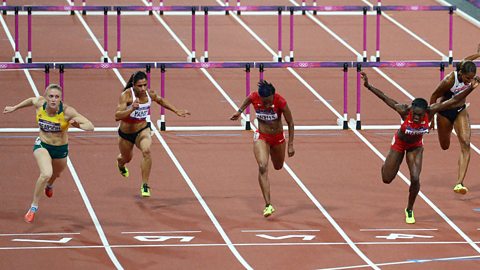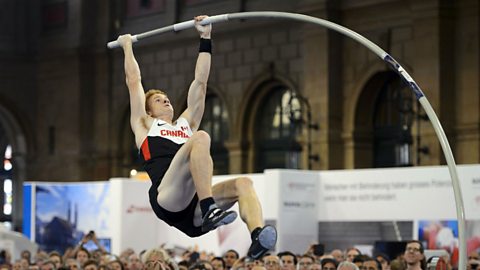Athletics - an overview and history of the sport
Overview

Athletics is a collection of sporting events that consist of three main areas:
- track events
- field events
- combined events
Athletics is often associated with the Olympics. However, it is not just for elite athletes. Each week athletes also compete at national, county, school or club level events which can be held indoors or outdoors.
Athletics events are very specialised and often do not require a full combination of fitness components, therefore offering something for everyone.
History
Historical evidence of the first ever Olympics held in Ancient Greece show events that are very similar to today. They included running events called 'stades' which were essentially sprints from one end of the stadium to the other, a distance of about 190 metres. This also included two-stade races. There were longer-distance races of between seven and 24 stades, which required enduranceThe ability to work hard for long periods of time..

Throughout the years the appeal of athletic-type events grew globally and in 1850 the Wenlock Agricultural Reading Society (WARS) created a competition that many view as the forerunner to the modern Olympic Games. The Wenlock Games was a mixture of athletics and traditional country sports that mixed competitive activities with fun events.
In 1896, the first Modern Olympic Games were held in Athens. It was a fantastic success and in 1912 the International Amateur Athletic Federation (IAAF) was established.
In recent years some events have disappeared, others have been modified, and new ones have been added. Although the summer Olympic Games is still seen as the pinnacle of an athlete's career, professional athletes now participate in IAAF competitions throughout the world, often competing for vast amounts of prize money.